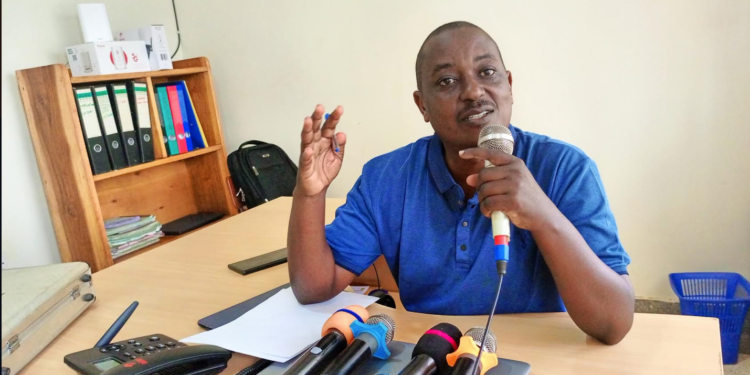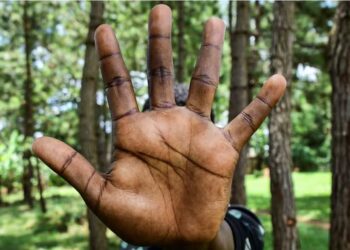By CHIMPREPORTS
A Ugandan non-governmental organisation has urged the government to include teaching of indigenous African herbal medicine on the school curriculum.
Allan Kalangi, the Executive Director of African Institute for Biodiversity and Sustainability (AIBIS) said while boardroom discussions and seminars are being dominated by how to modernise everything, there is less talk about the important and crucial elements of our traditions that helped Africans to thrive and survive for centuries.
“Among these elements is the African indigenous herbal medicine,” he observed in a press conference in Kiboga district, central Uganda on Wednesday.
“There are over 50,000 plants in Africa said to have medicinal properties and these plants helped Africans to treat different types of diseases for centuries before colonists started establishing modern hospitals in the last half of the 19th century,” he added.
“The colonial government together with the new religious faiths that they came with fought hard to discredit indigenous African medicine often associating it with witchcraft. This is mostly how it ended up not being a field of study in formal institutions of learning.”
The development comes at a time when the Ugandan Government is working on developing new curricula for different institutions of learning to make education more relevant to the prevalent development requirements.
Kalangi, a prominent researcher, said there are many testimonies in Uganda now by people who claim to have survived COVID-19 purely because of the herbal remedies.
“At the peak of the pandemic, even professionals trained in modern medicine had to turn to indigenous herbs and that’s how Uganda’s wonder COVID-19 drug-COVIDEX-was developed,” said Kalangi, emphasising, “This alone should be enough reason to convince the Ministry of Education to introduce studies on traditional herbal medicine.”
Deforestation
Kalangi further said the alarming rate of deforestation in Africa does not only make the African continent vulnerable to the vagaries of climate change but also threatens to make some of the important herbal medicinal plants extinct or rare since most of them grow in the natural forests.
“Teaching about the importance of herbal medicine therefore would reinvigorate the desire to conserve our natural forests,” he added,
Africa is one of the most biodiverse regions on Earth, hosting a quarter of global biodiversity.
However, according to a recent UN report, forests in Africa are being cut at a rate of 4 million hectares by year.
Kalangi further noted that children nowadays start school at a very young age and with increased urbanisation, there are very limited chances for the young generation to learn about herbal medicine.
In the past, African children obtained knowledge on indigenous herbal medicine from older members of society.
“Therefore, considering the importance of this herbal medicine, it would be important to have it in the formal education curriculum so that the young generations don’t miss out on it completely,” he observed.
Traditionally, herbal medicine was a common belonging to everyone.
Knowledge
“However, of late, because of the demand for this medicine and because of limited knowledge and accessibility to it, some people with commercial interests have cropped up everywhere and they are selling it in some kind of processed form. It is hard to tell how safe this already packaged herbal medicine is. There is also a fear that some people might patent it and make it out of reach of the majority,” said Kalangi.
He said teaching about herbal medicine in formal institutions of learning will necessitate proper research and practice on its use and preservation.
The researcher said traditionally, knowledge about indigenous medicines was passed on from one generation to another (from head-to-head) without any form of documentation.
“However, as seen above, people with this knowledge are dying out without a chance to impart it to the youth who are mostly in schools learning only about modern medicine. Teaching about indigenous African medicine will necessitate documenting the different varieties of traditional medicine and how each can be administered properly,” he emphasised.








Discussion about this post